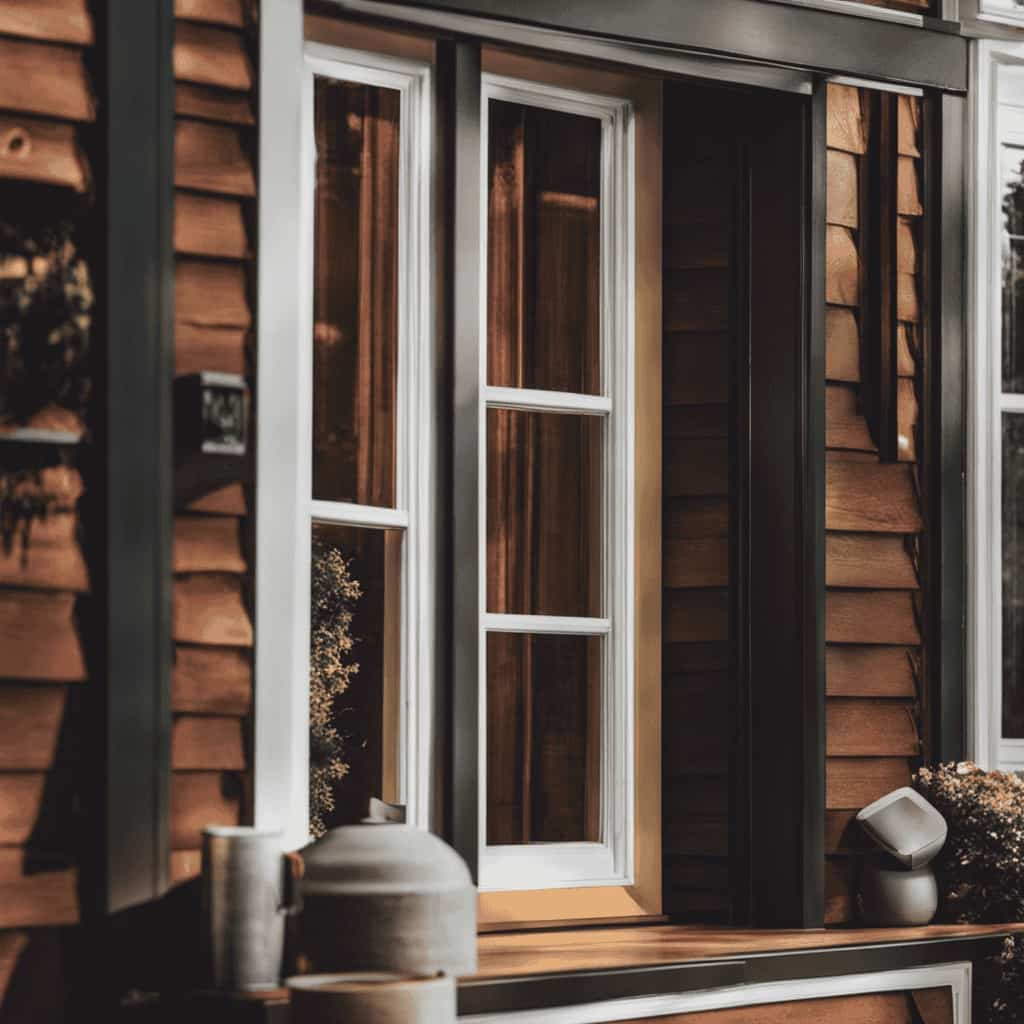
We understand that heat pump efficiency can seem like a complicated subject. However, fret not, as in this article, we will help you navigate the world of heat pump efficiency and energy conservation.
From understanding efficiency ratings to optimizing performance and implementing energy-saving strategies, we’ve got you covered.
We’ll also share tips on maintaining your heat pump for maximum efficiency and how to harness renewable energy sources.
Get ready to take control and make your heat pump work smarter, not harder.
Key Takeaways
- Heat pump efficiency is determined by factors such as SEER and HSPF ratings.
- Proper sizing, installation, and maintenance are crucial for optimizing heat pump performance.
- Implementing energy-saving strategies such as regular maintenance, clearing obstructions, and sealing air leaks can improve efficiency.
- Harnessing renewable energy sources like solar power and geothermal energy can enhance heat pump efficiency and sustainability.
Understanding Heat Pump Efficiency Ratings
As we delve into ‘Understanding Heat Pump Efficiency Ratings’, we can gain valuable insights into maximizing the efficiency of our heat pumps. Heat pump technology advancements have significantly improved the efficiency of these systems, making them an attractive option for heating and cooling our homes.
The efficiency of a heat pump is determined by several factors, including the Seasonal Energy Efficiency Ratio (SEER) and the Heating Seasonal Performance Factor (HSPF). SEER measures the cooling efficiency, while HSPF measures the heating efficiency of the system. Other factors affecting heat pump efficiency include the size and insulation of our homes, outdoor temperature, and the proper installation and maintenance of the system.
Optimizing Heat Pump Performance Through Proper Size and Installation
By properly sizing and installing our heat pumps, we can optimize their performance and maximize efficiency. Here are four key factors to consider:
-
Proper sizing: It’s crucial to select a heat pump that’s appropriately sized for the space it will be installed in. Undersized units will struggle to meet heating or cooling demands, leading to reduced efficiency and increased energy consumption. Oversized units may short cycle and result in poor humidity control.
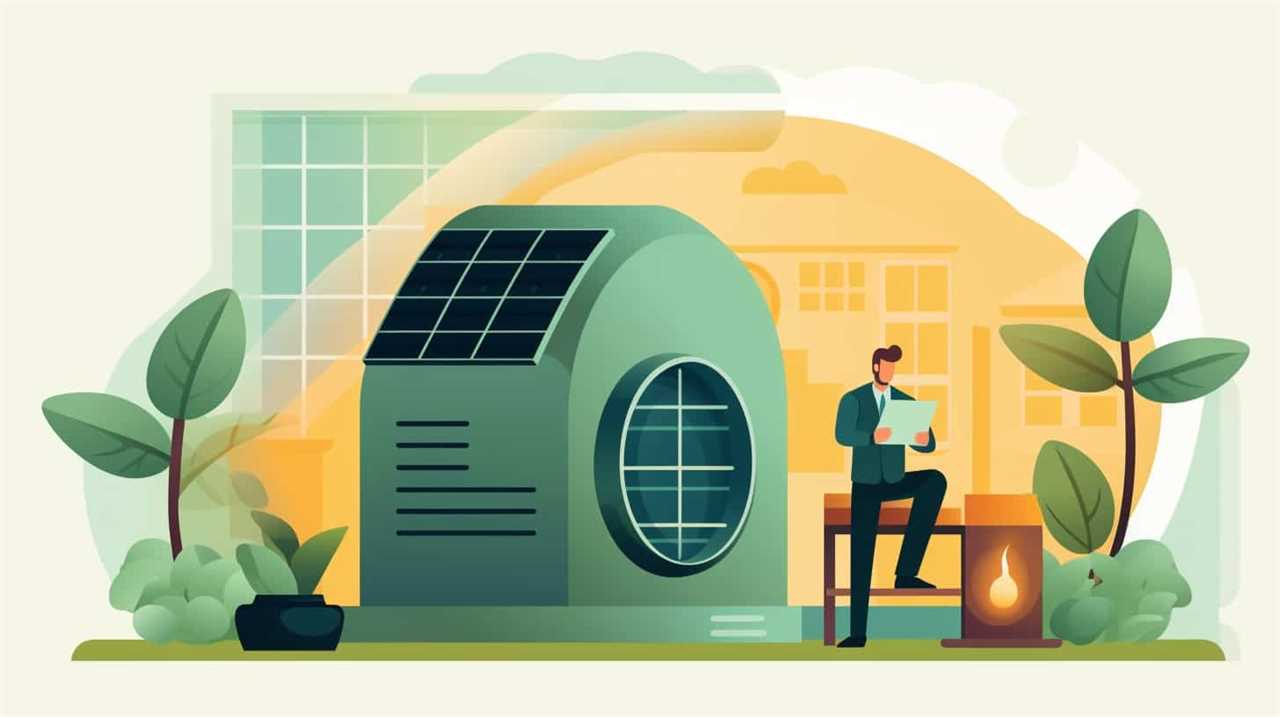
-
Correct installation: A professional installation ensures that the heat pump is correctly positioned and connected. This includes proper placement of outdoor and indoor units, as well as correct refrigerant line sizing and insulation. It’s also essential to ensure proper airflow and duct sealing, if applicable.
-
Regular maintenance: Proper maintenance is crucial for optimal heat pump performance. Regularly cleaning or replacing air filters, checking refrigerant levels, and inspecting electrical connections can help prevent efficiency losses and costly repairs.
-
Ductless installation: Ductless heat pumps offer increased efficiency and flexibility compared to traditional systems. By eliminating the need for ductwork, ductless installations reduce energy losses associated with leaky ducts and can provide zoned heating and cooling, further improving efficiency.
Implementing Energy-Saving Strategies for Heat Pump Operation
We can achieve optimal energy efficiency and cost savings by implementing strategies to optimize the operation of our heat pumps.
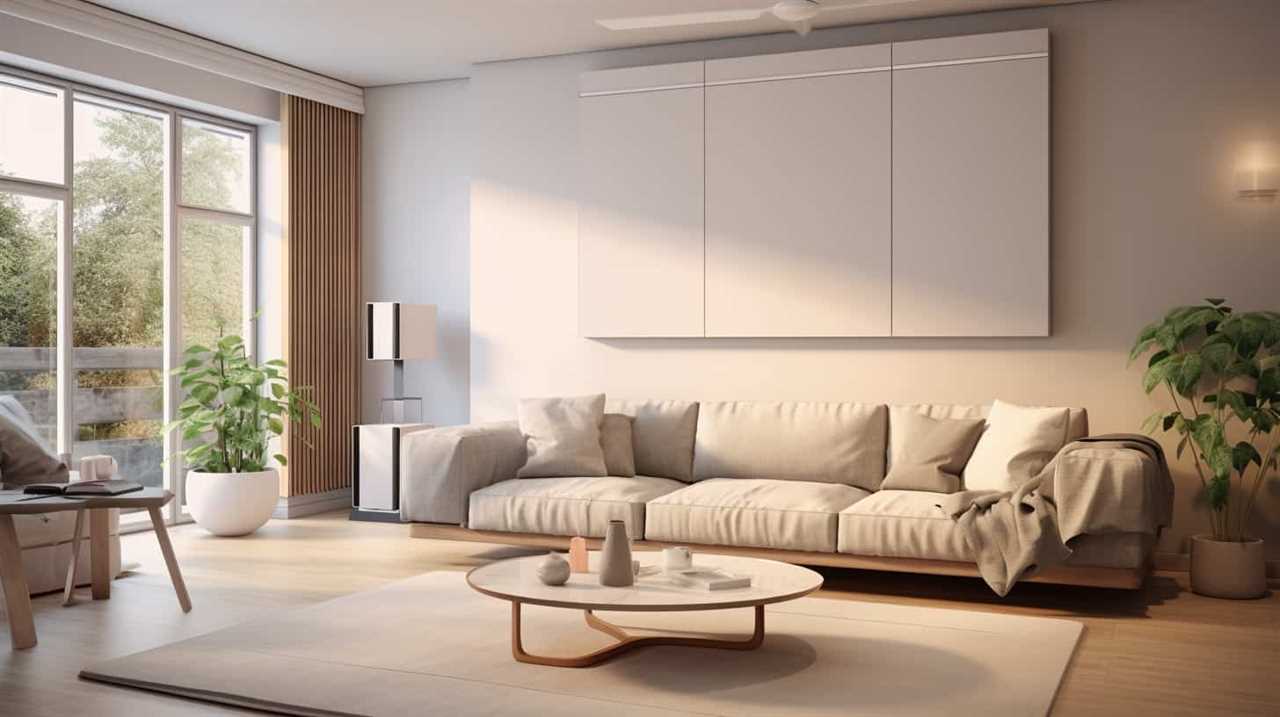
To start, regular maintenance is essential for ensuring peak performance. This includes cleaning or replacing air filters every one to three months and scheduling professional maintenance annually.
Another energy-saving tip is to keep the area around the heat pump clear of debris and obstructions to allow for proper airflow.
Additionally, programming the thermostat to lower the temperature when no one is home or during sleeping hours can lead to significant energy savings.
Lastly, it’s important to seal any air leaks in the ductwork to prevent energy loss.
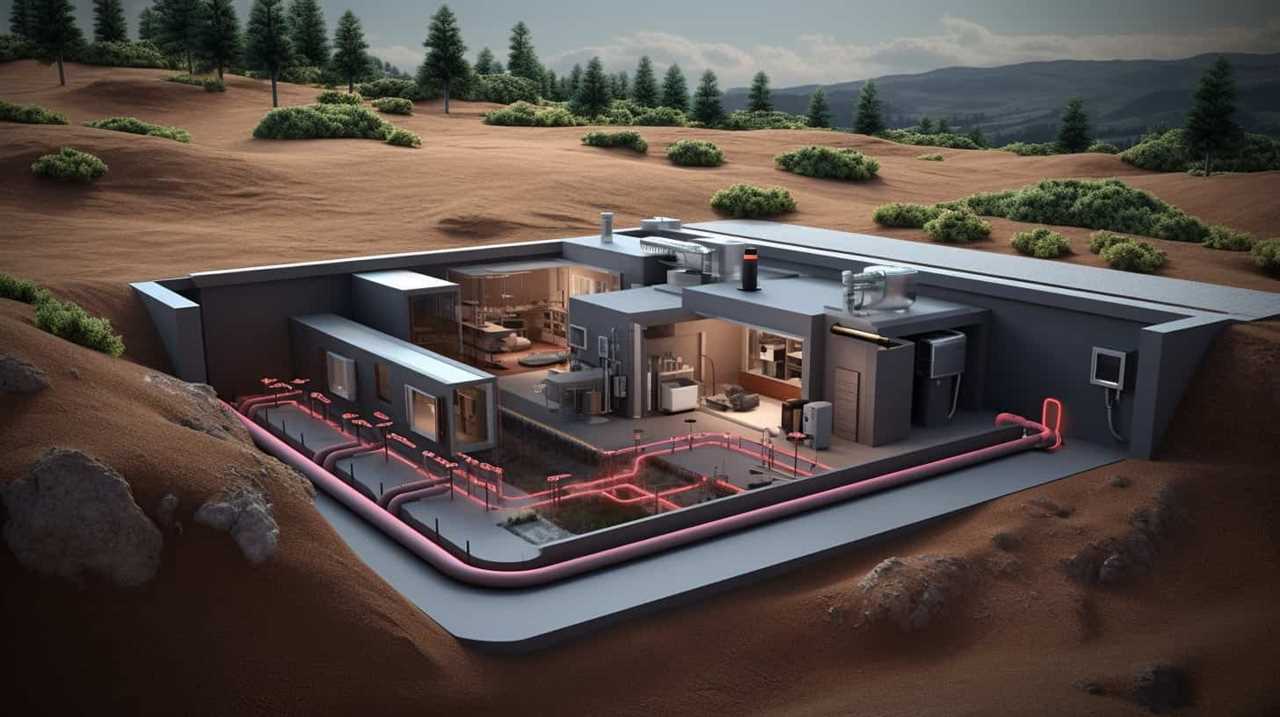
Maintaining and Servicing Your Heat Pump for Maximum Efficiency
Regular maintenance and servicing of our heat pump is crucial for achieving and maintaining maximum efficiency. To ensure the long-term performance of your heat pump, follow these heat pump maintenance and troubleshooting tips:
- Clean or replace the air filters regularly. Clogged filters can restrict airflow and reduce efficiency.
- Check and clean the outdoor unit. Remove any debris, leaves, or dirt that may obstruct the airflow.
- Inspect the refrigerant levels and ensure there are no leaks. Low refrigerant levels can decrease efficiency.
- Schedule professional maintenance annually. A trained technician can identify and fix any potential issues before they become major problems.
Harnessing Renewable Energy Sources to Enhance Heat Pump Efficiency
To optimize heat pump efficiency, we can harness renewable energy sources such as solar power and geothermal energy. These sources offer significant advantages in terms of sustainability and cost savings.
Solar power can be used to generate electricity, which can then be used to power the heat pump. By utilizing solar panels, homeowners can take advantage of renewable energy incentives and reduce their reliance on traditional electricity sources.
Geothermal energy, on the other hand, utilizes the stable temperature of the earth to provide heating and cooling for the heat pump. This reduces the need for electricity or fuel to generate heat or cool air.
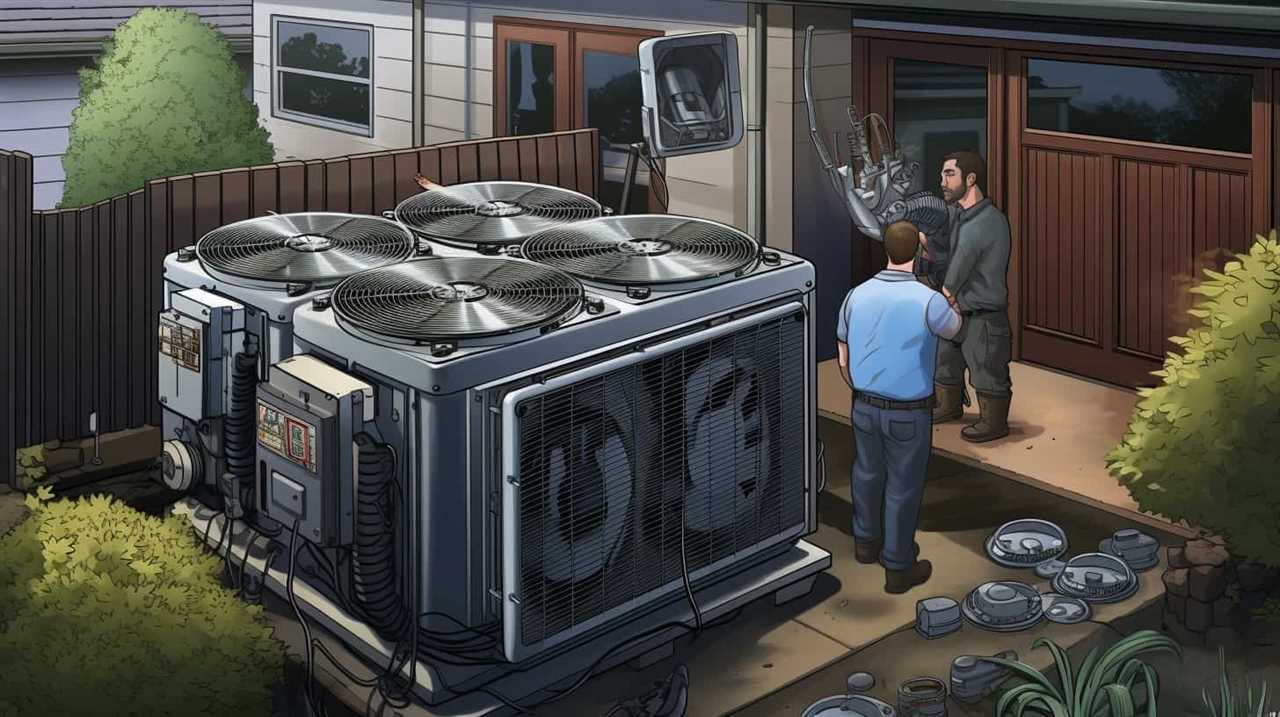
With recent heat pump technology advancements, integrating renewable energy sources has become even more efficient and cost-effective.
Frequently Asked Questions
Are There Any Government Incentives or Rebates Available for Installing a Heat Pump?
Yes, there are government incentives and rebates available for heat pump installation. These incentives aim to promote energy efficiency and reduce carbon emissions. They can help offset the upfront costs and make heat pump installation more affordable.
How Long Does a Typical Heat Pump System Last?
Heat pump lifespan depends on various factors such as maintenance, usage, and quality. Regular maintenance can help extend the lifespan. On average, a well-maintained heat pump can last 15-20 years.
Can a Heat Pump Be Used as a Standalone Heating or Cooling System?
Yes, a heat pump can be used as a standalone heating or cooling system. It is an energy-efficient alternative to traditional HVAC systems, providing both heating and cooling benefits in one unit.

Are There Any Specific Maintenance Tasks That Homeowners Can Perform to Improve Heat Pump Efficiency?
Regular maintenance and following energy saving tips can greatly improve heat pump efficiency. By performing tasks such as cleaning or replacing air filters and ensuring proper airflow, homeowners can maximize their system’s performance and save on energy costs.
How Does the Location or Climate Affect the Performance and Efficiency of a Heat Pump?
The location and climate greatly impact a heat pump’s performance and efficiency. Factors such as temperature extremes, humidity levels, and air quality can affect its ability to heat or cool effectively. Proper sizing and installation are essential for optimal operation.
Conclusion
In conclusion, mastering heat pump efficiency is crucial for energy conservation.
By understanding efficiency ratings, optimizing performance through proper size and installation, implementing energy-saving strategies, and maintaining and servicing your heat pump, you can maximize its efficiency.
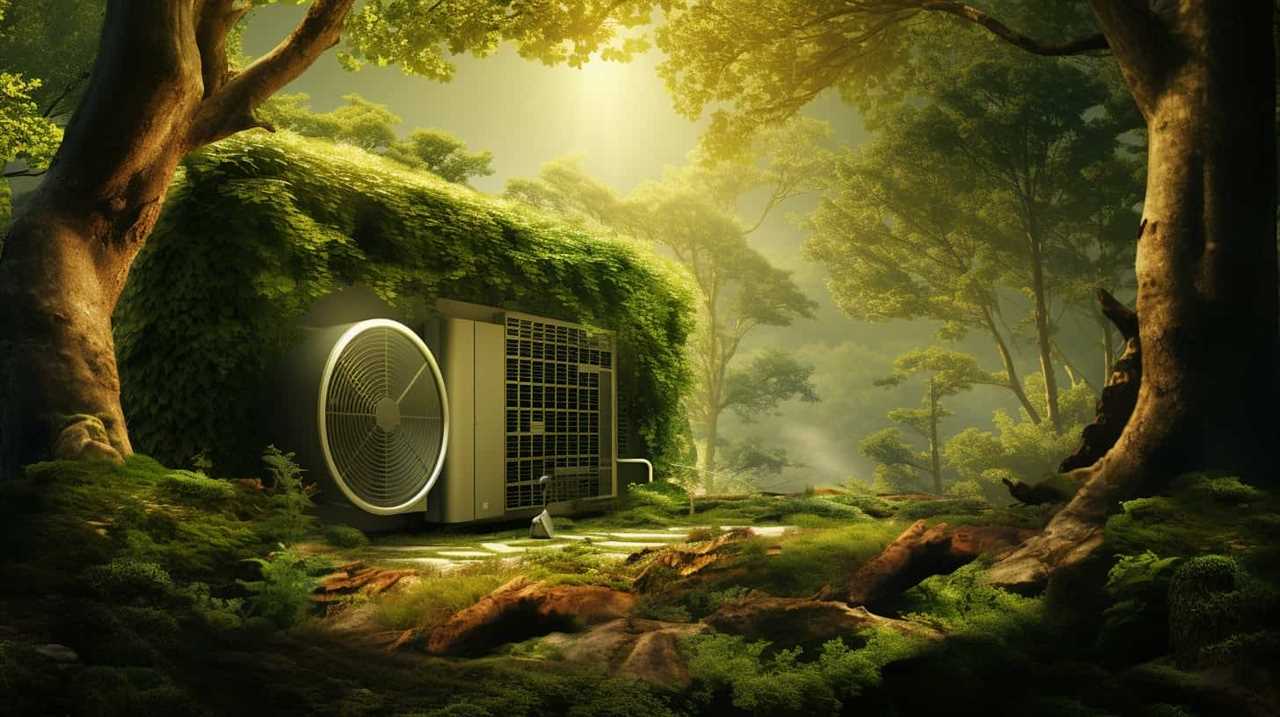
Additionally, harnessing renewable energy sources can further enhance its effectiveness.
Just like a well-orchestrated symphony, these efforts work together harmoniously to ensure a smooth and efficient operation, bringing comfort and savings to your home.





